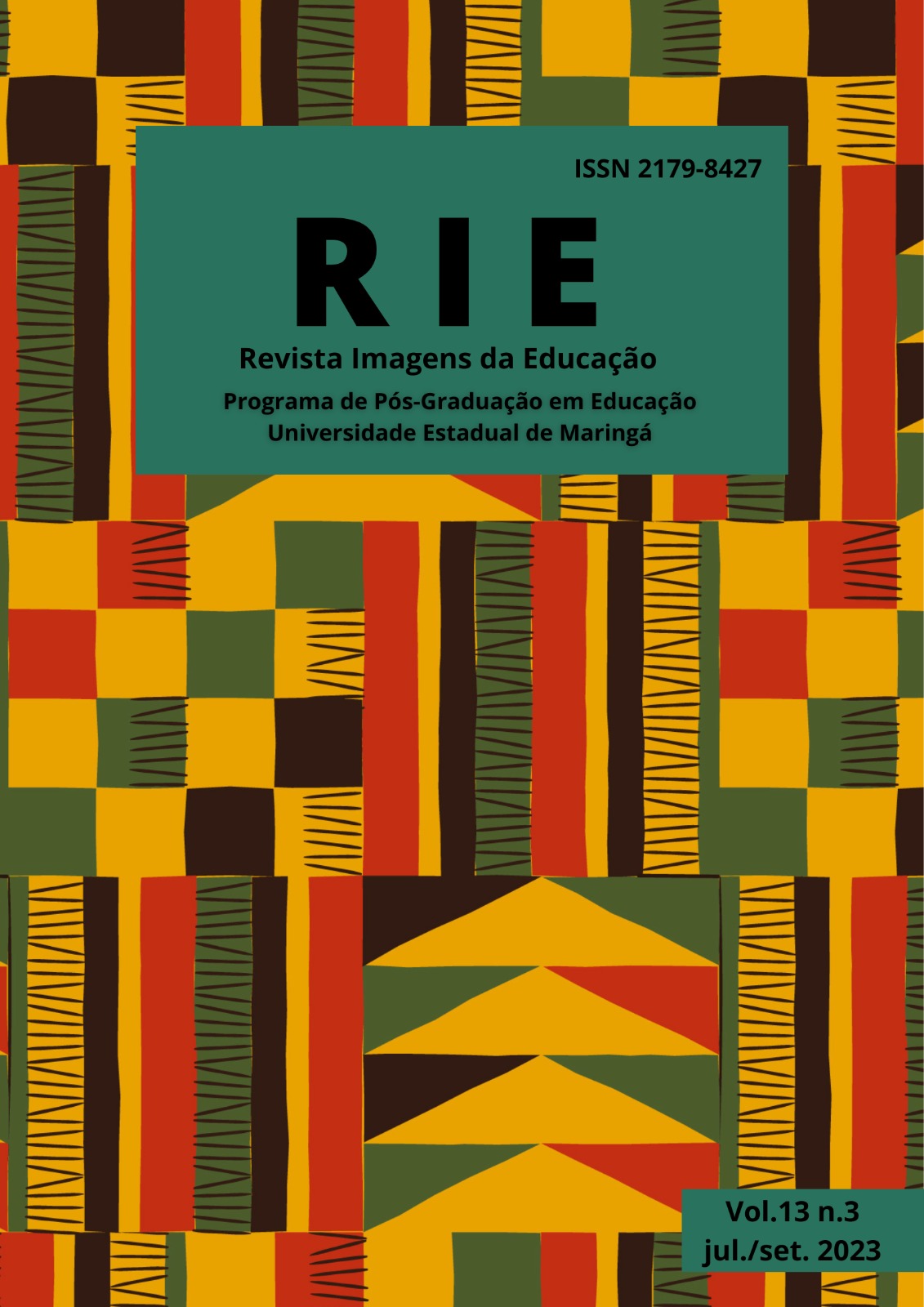A PRÁTICA DE MEDICALIZAÇÃO DOS/AS “DIFERENTES” NO CURRÍCULO PARA GARANTIR UMA PEDAGOGIA DIRECIONADA PARA O GRUPO
Resumo
O artigo analisa o funcionamento da prática medicalizante nos currículos destinados aos 6° e 7° anos do ensino fundamental, de duas escolas de Belo Horizonte, sendo uma escola da rede privada de ensino e a outra escola da rede pública. Nos currículos aqui investigados essa prática é acionada, fazendo uso de uma aliança estratégica entre o discurso médico e o discurso pedagógico para lidar com determinadas crianças nas escolas. Trata-se de uma prática que produz efeitos tanto nos currículos quanto nos corpos dos estudantes. O argumento aqui desenvolvido é o de que a prática medicalizante funciona produzindo o raciocínio de que a medicação é um pré-requisito para que a aprendizagem dos/as alunos/as diagnosticados/as com TDAH seja otimizada, de modo que uma pedagogia direcionada ao grupo funcione. Contudo há conflitos na implementação dessa prática nos currículos investigados. Afinal, verificamos que alguns estudantes acionam a estratégia da subversão da medicação porque questionam os efeitos dela em seus corpos, em seu aprender e em suas relações sociais. Isso evidencia a urgência de se encontrar outras maneiras de lidar com a diferença no currículo.
Downloads
Referências
Bonadio, R. A. A., & Mori, N. N. R. (2013). Transtorno do Déficit de Atenção/Hiperatividade: diagnóstico e prática pedagógica. EDUM.
Butler, J. (2006). Deshacer el Género. Paidós.
Campos, C. A., & Paraíso, M. A. (2015). Raciocínios que generificam, diferenciam e hierarquizam no currículo da alfabetização de crianças. [Apresentação]. Anais do VI Seminário Brasileiro; III Seminário Internacional de Estudos Culturais e Educação. Canoas.
Corazza, S. (2000). O que faz gaguejar a linguagem da escola. In Alves-Mazzotti, A., & Candau, V. (Orgs.). Linguagens, espaço e tempos no ensinar e aprender. ENDIPE (pp. 89-104). DP&A.
Corazza, S. (2001). O que quer um currículo: pesquisas pós-críticas em educação. Vozes.
Costa, T. C. (2006). Crianças indóceis em sala de aula. [Dissertação de mestrado não publicada]. Faculdade de Educação da Universidade Luterana do Brasil.
Foucault, M. (2008). Nascimento da Biopolítica: curso dado no Collège de France (1978-1979). Martins Fontes.
Foucault, M. (2017). Microfísica do poder. (pp. 55-86). Graal.
Franceschini, B. (2015, junho). O dispositivo de saber médico e a subjetivação do aluno hiperativo. Cadernos do IL, 50, 235-252.
Goodson, I. (1995). Etimologias, epistemologias e o emergir do currículo – Currículo: teoria e história. (pp. 29-44). Vozes.
Guarido, R. L. (2008). “O que não tem remédio, remediado está”: medicalização da vida e algumas implicações da presença do saber médico na educação. [Dissertação de mestrado não publicada]. Faculdade de Educação da Universidade de São Paulo.
Itaborahy, C. (2009). A Ritalina no Brasil: uma década de produção, divulgação e consumo. [Dissertação de mestrado não publicada]. Universidade do Estado do Rio de Janeiro.
Martins, R. A. C. (2020). Currículos e o transtorno de Déficit de Atenção com Hiperatividade. [Dissertação de mestrado não publicada]. Universidade Federal de Minas Gerais.
Moysés, M. A. A., & Collares, C. A. L. (2013). Medicalização: o obscurantismo reinventado. In Collares, C. A. L., Moysés, M. A. A., & Ribeiro, M. C. F. (Orgs.). Novas capturas, antigos diagnósticos na era dos transtornos. (pp. 41-64). Mercado de Letras.
Nogueira, D. M. (2010). Gênero e sexualidade na educação. [Apresentação]. Anais do 1º Simpósio Sobre Estudos de Gênero e Políticas Públicas. Londrina.
Orrú, S. E. (2017). O re-inventar da inclusão: os desafios da diferença no processo de ensinar e aprender. Vozes.
Paraíso, M. A. (2007). Currículo e mídia educativa brasileira: poder, saber, subjetivação. Argos.
Paraíso, M. A. (2010a). Apresentação. In Paraíso, M. A. (Org.). Pesquisas sobre currículos e culturas: temas, embates, problemas e possibilidades. (pp. 11-14). CRV.
Paraíso, M. A. (2010b, maio-agosto). Diferença no currículo. Cadernos de Pesquisa, 40(140), 587-604.
Paraíso, M. A. (2016, setembro-dezembro) A ciranda do currículo com gênero, poder e resistência. Currículo sem Fronteiras, 16(3), 388-415.
Popkewitz, T. S. (1998). Reforma educacional e construtivismo. In Silva, T. T. (Org.). Liberdades reguladas: a pedagogia construtivista e outras formas de governo do eu. Vozes.
Reis, C. A., & Paraíso, M. A. (2013, outubro-dezembro). A Constituição de Corpos Guerreiros em um Currículo Escolar. Educação & Realidade, 38(4), 1.243-1.266.
Ritalina®. Bula. Novartis Biociências S/A. www.bulas.med.br/index.
Rose, N. (2001). Inventando nossos eus. In Silva, T. T. Nunca fomos humanos: nos rastros do sujeito. (pp. 137-203). Autêntica.
Rose, N. (2011). Inventando nossos selfs: psicologia, poder e subjetividade. Vozes.
Silva, G. R., & Henning, P. C. (2013). Pesquisa em Educação: experimentando outros modos investigativos. [Coleção Cadernos Pedagógicos v. 18]. FURG.
Silva, T. T. (2010). Documentos de Identidade: uma introdução às teorias de currículo. Autêntica.
Walkerdine, V. (1998). Uma análise foucaultiana da pedagogia construtivista. In Silva, T. T. (Org.). Liberdades reguladas: a pedagogia construtivista e outras formas de governo do eu. Vozes.
Copyright (c) 2023 Imagens da Educação

This work is licensed under a Creative Commons Attribution-NonCommercial-NoDerivatives 4.0 International License.
Declaro que o presente artigo é original, não tendo sido submetido à publicação em qualquer outro periódico nacional ou internacional, quer seja em parte ou em sua totalidade. Declaro, ainda, que uma vez publicado na revista Imagens da Educação,ele não será submetido por mim ou pelos demais co-autores a outro periódico. Por meio deste instrumento, em meu nome e dos co-autores, cedo os direitos autorais do referido artigo à Revista e declaro estar ciente de que a não observância deste compromisso submeterá o infrator a sanções e penas previstas na Lei de Proteção de Direitos Autorias (Nº 9609, de 19/02/98).















1.png)

